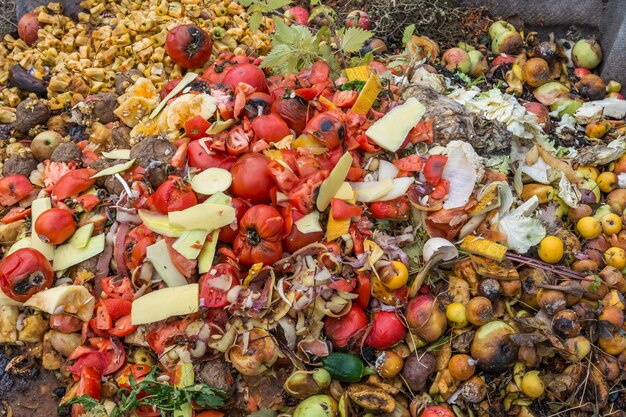Effective farm waste management is critical for maintaining productivity, preserving the environment, and complying with regulations. South African farmers, faced with challenges such as limited land and water resources, need to adopt sustainable practices. However, many make common mistakes that can compromise efficiency, harm ecosystems, and increase costs. Here are ten common mistakes in managing farm waste and how to address them.
1. Improper Segregation of Waste
One of the biggest mistakes farmers make is failing to separate waste types such as organic, recyclable, and hazardous materials. Mixing these wastes not only makes disposal difficult but also increases contamination risks. Implement a waste segregation system with clearly labeled bins for different waste types to ensure proper disposal and recycling.
2. Burning Waste on Farms
Burning plastic, crop residues, or other farm waste is a common practice in South Africa but leads to air pollution and health risks. Open burning releases harmful gases like carbon monoxide and dioxins, contributing to climate change and respiratory problems. Instead, explore alternatives like composting organic waste or recycling plastics.
3. Neglecting Organic Waste Composting
Organic waste such as crop residues, manure, and food scraps often goes unused. Instead of letting it decompose in landfills, farmers should compost organic waste to create nutrient-rich fertilizer. Composting reduces methane emissions from landfills and improves soil health, reducing the need for chemical fertilizers.
4. Overlooking the Value of Recycling
Many farmers underestimate the importance of recycling materials like plastic containers, packaging, and metal scraps. Improper disposal of recyclables not only wastes resources but also pollutes the environment. Partner with local recycling companies to ensure proper collection and reuse of these materials.
5. Failing to Manage Hazardous Waste
Pesticides, herbicides, fertilizers, and other chemicals require careful handling and disposal. Farmers often dispose of these hazardous substances improperly, leading to soil and water contamination. Use designated collection services for hazardous waste and follow guidelines for safe storage and disposal.
6. Ignoring Water Runoff Management
Farm waste can easily contaminate water sources through runoff, especially during heavy rains. Neglecting to manage runoff allows pollutants such as chemicals, manure, and sediment to enter rivers and dams, harming aquatic ecosystems. Create buffer zones with vegetation and install runoff management systems like sediment traps or drainage ditches.
7. Lack of Training for Workers
Farm workers often lack the knowledge to handle waste responsibly. Without proper training, waste management practices can be inconsistent or harmful. Provide regular training on waste segregation, safe handling of chemicals, and the importance of recycling to ensure everyone on the farm contributes to sustainable practices.
8. Overusing Single-Use Plastics
The excessive use of single-use plastics, such as plastic bags, seed trays, and mulch films, contributes to waste accumulation. Farmers should invest in reusable or biodegradable alternatives to minimize plastic waste. Using natural materials like jute sacks or biodegradable mulches can further reduce environmental impact.
9. Skipping Waste Audits
Many farmers fail to conduct waste audits to understand the volume and types of waste generated. Without this information, it’s challenging to develop effective waste management strategies. Regular waste audits help identify problem areas, measure progress, and implement targeted solutions.
10. Non-Compliance with Regulations
South Africa has regulations governing farm waste management, such as the National Environmental Management: Waste Act. However, some farmers neglect to comply, leading to fines and environmental damage. Familiarize yourself with these regulations and ensure your farm adheres to legal requirements.
Best Practices for Farm Waste Management
- Develop a Waste Management Plan: Create a comprehensive plan that addresses all types of waste, including organic, recyclable, and hazardous materials.
- Compost Organic Waste: Use composting to recycle organic materials into fertilizer, improving soil health and reducing waste.
- Collaborate with Recycling Partners: Partner with local recyclers to handle plastic, metal, and glass waste.
- Invest in Technology: Explore waste-to-energy systems or biodigesters to convert waste into renewable energy.
- Educate Your Team: Conduct regular workshops and training sessions to instill sustainable practices among workers.
Managing farm waste effectively is essential for sustainable farming and environmental protection. By avoiding these common mistakes, South African farmers can reduce their environmental impact, save costs, and comply with regulations. Embracing proper waste management practices ensures a cleaner, healthier farm environment while contributing to long-term agricultural success.
Join 'Farmers Mag' WhatsApp Channel
Get the latest Farming news and tips delivered straight to your WhatsApp
CLICK HERE TO JOIN






